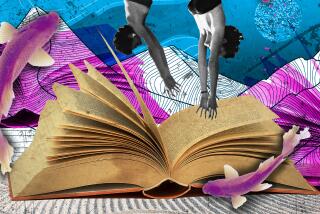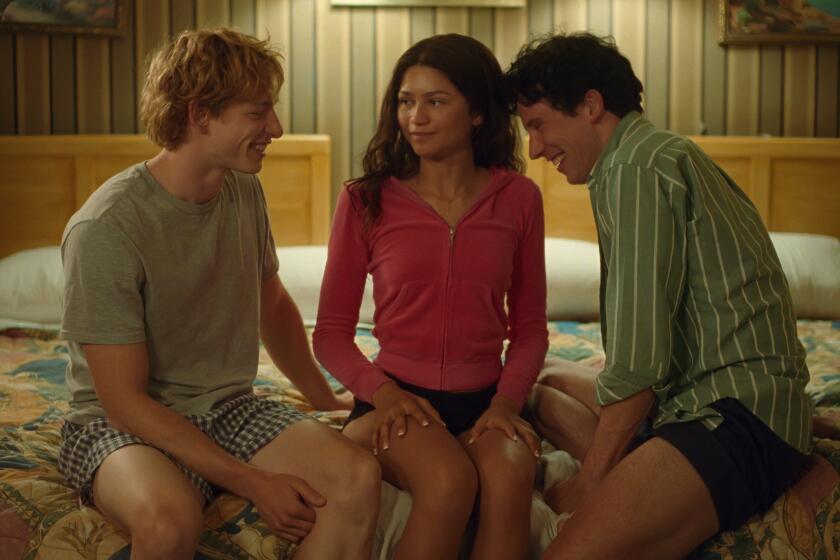A lifetime bond over books
Every Christmas when I was a child and even as a young adult, I knew which present I would open last. Deep under the tree, covered with fallen needles and those home-made paper ornaments you save for the lowest branches, lay a large box. Originally used for some bulky garment — a really significant cardigan or, pushing further back, one of those inexplicably popular fuzzy ponchos —it was the kind of box one saved, once upon a time, before gift bags were invented and gift wrap was dear, when kids were encouraged to slow down and remove the paper carefully so it could be smoothed, folded and used again. To make this box suitable for easy reuse, only its lid had been wrapped in red paper bedecked with some green figure (wreaths possibly, or just festive bows) that over the years frayed at the corners and had a web of inevitable wrinkles so that it eventually looked like a Christmas present might look on a TV screen full of static.
But there was always a brand-new bow on it because my father loved those big, fat stick-on bows, and this box was from him. . Which meant it was full of books.
Agatha Christie and Dorothy Sayers, Mary Stewart and J.D. Salinger, Tolkien and Woolf and Wharton, Dickens and Vonnegut and, in later years, Frank O’Connor, then more Frank O’Connor. It started when I was in third grade, with the “Little House” series and Louisa May Alcott; every Christmas until his death my father gave me a big box of books. Paperback because he and I both read too much to afford hardbacks, but shiny and tantalizing as any bracelet or sweater or electronic gadget. A Whitman sampler of books that I would spend the rest of my holidays devouring, hoarding the leftovers in sliding stacks beside my bed. Books I would keep with me, would move from city to city, from coast to coast.
Because it wasn’t just a present, that box. It was a bond, a hand squeezing mine under the table to remind me that, no matter what storms were currently raging — between us or around us — we would always have this, our shared love of, and belief in, the daily act of reading.
“Until I feared I would lose it, I did not love reading; one doesn’t love breathing,” wrote Harper Lee, via Scout Finch, the narrator of “To Kill a Mockingbird” and I don’t think there is a sentence in the English language that I understand more. I learned to read as Scout did, sitting on my father’s lap, behind newspapers and books, following his finger as he read, which was all the time.
My father never moved without a book in his hand. While my mother, also a prodigious reader, put aside her novels to teach me my letters and take me from picture books to simple narratives, Dad’s idea of age-appropriate fare for a 6-year-old was “Robinson Crusoe” and “Gulliver’s Travels,” and not any of the abridged versions. He gave me “The Catcher in the Rye” when I was in the fifth grade, Jane Austen when I was in the sixth. He watched what I brought home from the library, what I read and what I didn’t and asked why, pushed me to read Truman Capote and Willa Cather as thoroughly and with as much respect as I read Hemingway and Fitzgerald … no matter what my sniffy high school teachers said. He gave me Cheever and Updike and Somerset Maugham. He didn’t like Mailer, ditto Gore Vidal, but we read them and discussed them and spent hours putting together our own Century lists — those authors whose work would survive 100 years.
It was an ongoing conversation we could have when other topics became too painful or infuriating, a secret code through which we could send each other messages of encouragement and support or anger and disappointment. “What are you reading?” became our “how are you doing?” Dorothy Day meant things weren’t going so well for him, another sojourn into “Bleak House” meant I was seeking refuge.
As I grew older, I gave as well as received, introduced him to Margaret Atwood and Margaret Drabble, A.S. Byatt and Jorge Luis Borges, and my big box of books grew smaller and more selective — Trollope’s Palliser novels, the letters of Virginia Woolf. But the conversation never flagged.
The last night of my father’s life, I sat up late in hospice with him. He hadn’t responded to us in almost two days, and I had run out of ways to say goodbye so I was reading the book I had shoved in my purse on the way to the airport — a copy of Agatha Christie’s “N or M ?” But in between the words, the silence was just too full of what was going to happen next. So I read aloud, to my dying father, from a yellow-paged, dog-earred paperback that he had given me in a big red box one long ago Christmas.
More to Read
The biggest entertainment stories
Get our big stories about Hollywood, film, television, music, arts, culture and more right in your inbox as soon as they publish.
You may occasionally receive promotional content from the Los Angeles Times.











